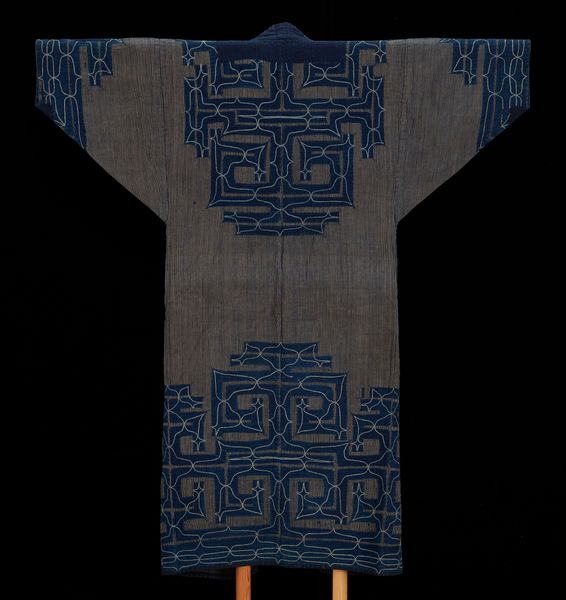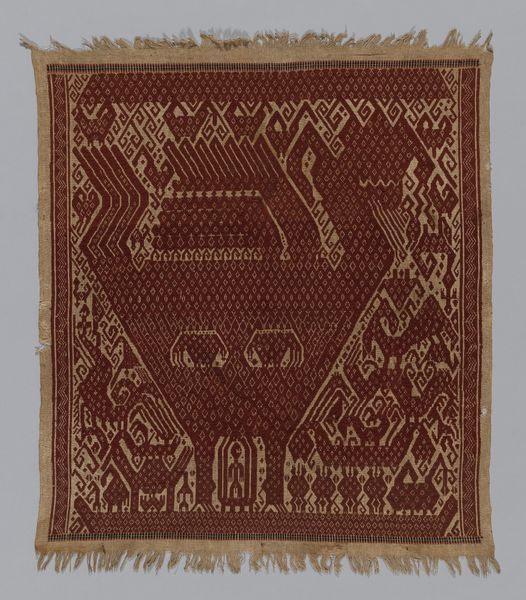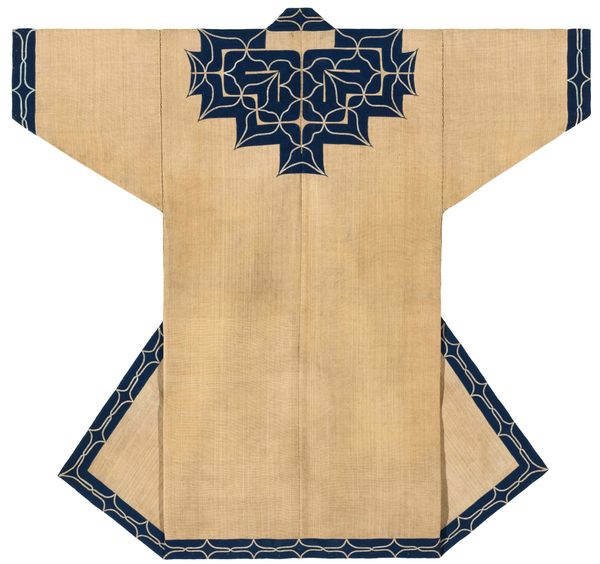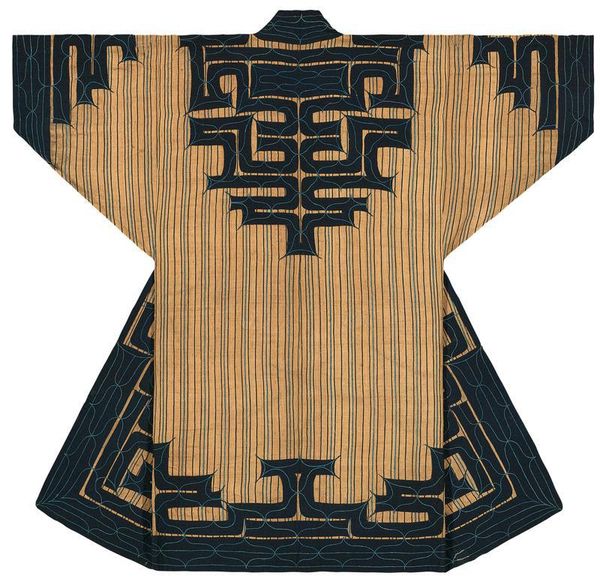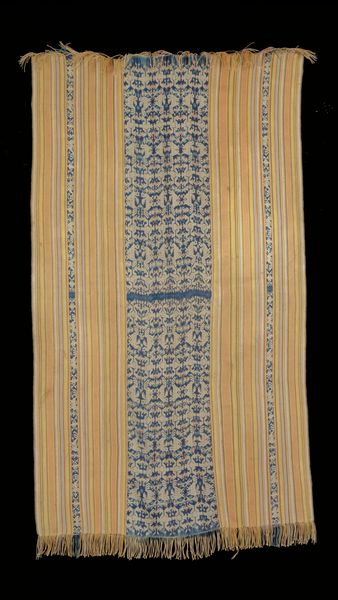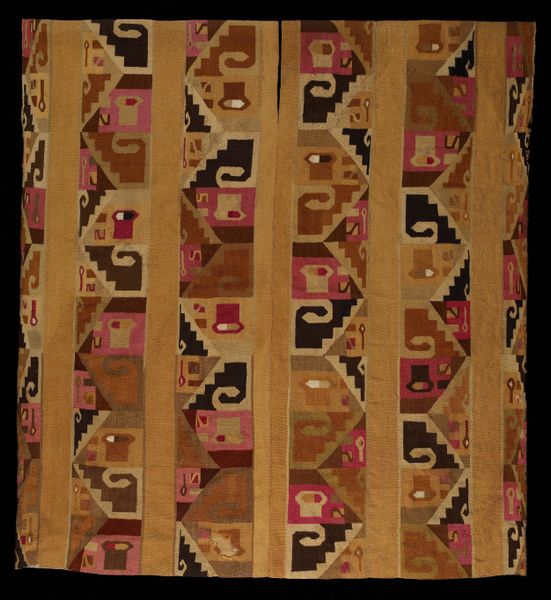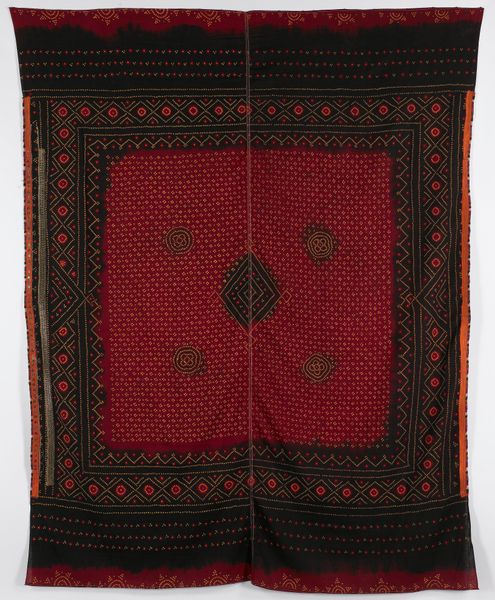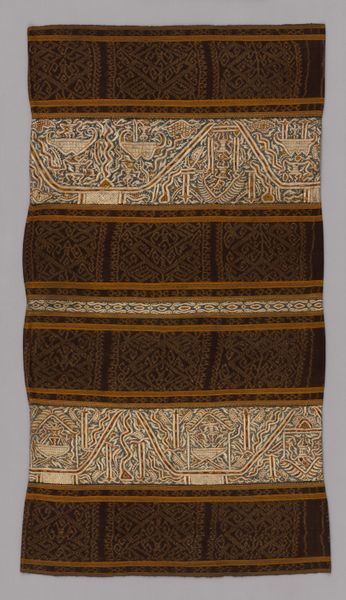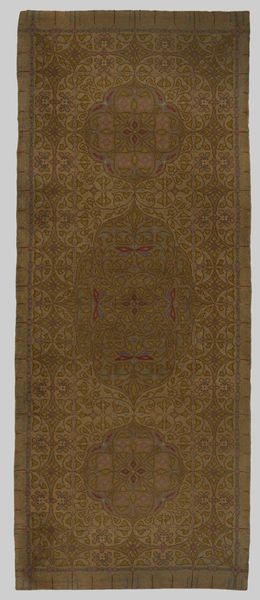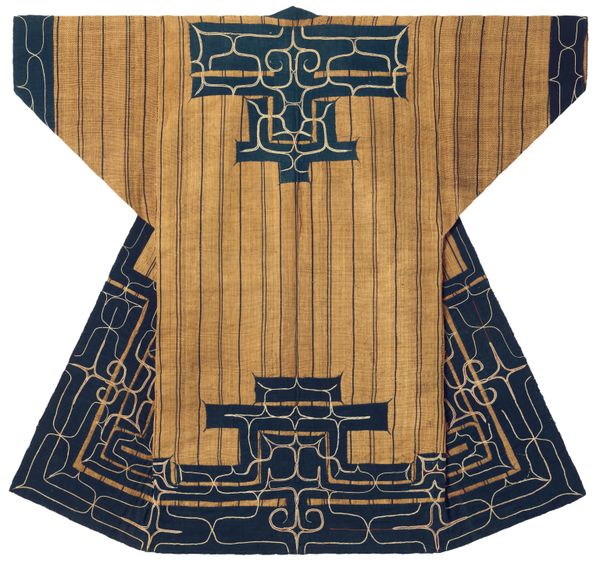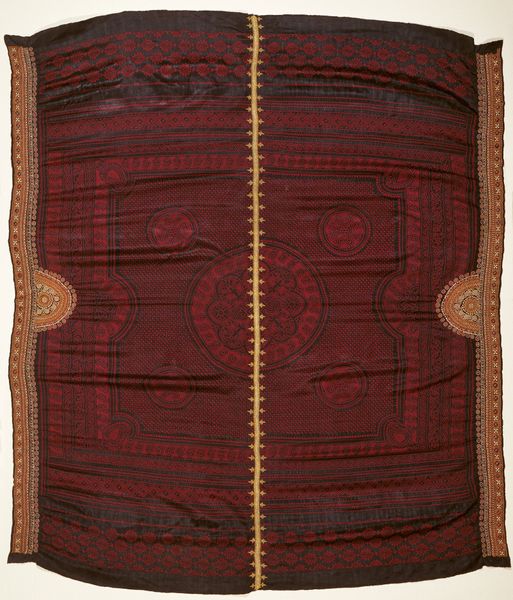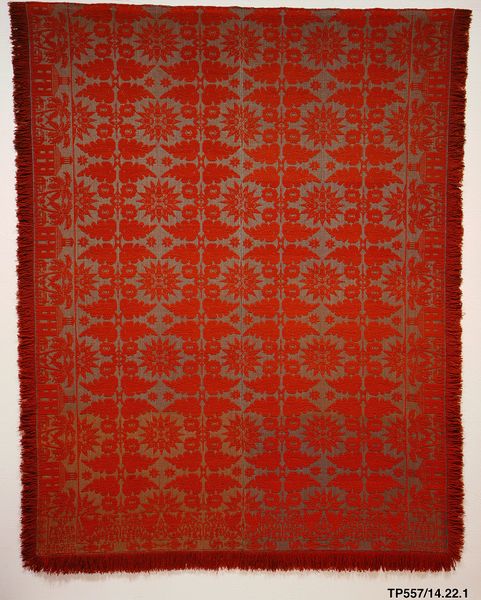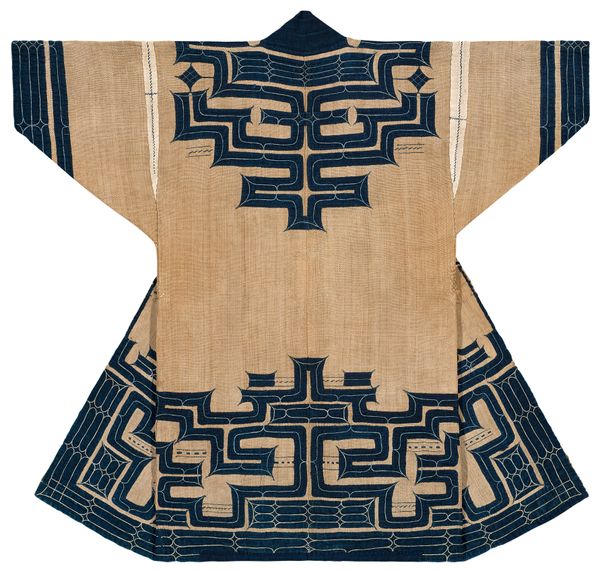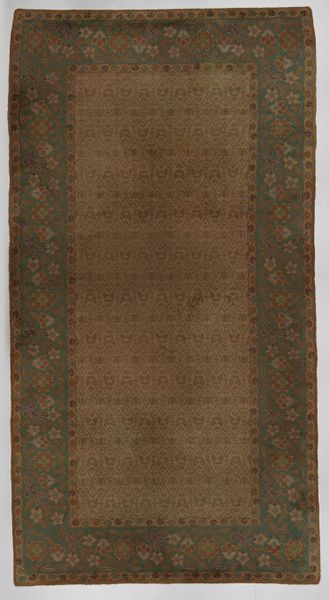
fibre-art, weaving, textile
#
pattern heavy
#
fibre-art
#
random pattern
#
asian-art
#
weaving
#
textile
#
repetitive shape and pattern
#
organic pattern
#
geometric
#
repetition of pattern
#
vertical pattern
#
pattern repetition
#
imprinted textile
#
layered pattern
#
funky pattern
Dimensions: 28 3/16 × 84 3/16 in. (71.6 × 213.84 cm) (including straps)
Copyright: Public Domain
This apron, or mantari, was likely woven and embroidered in the highlands of Guatemala. The anonymous maker used backstrap-loom cotton, dyed in indigo and other natural colors, to create a garment both practical and powerfully symbolic. The textile's woven structure gives it a substantial, earthy quality. The embroidery, however, elevates it into an art form. The geometric patterns are not merely decorative; they represent a complex cosmology. The time and skill that went into this apron would have been considerable. The weaver would have needed expertise in setting up the loom, creating a tight weave, and executing the complex pattern. The creation of such an apron represents a profound investment of labor, an act of cultural affirmation through making. It challenges our conventional understanding of art, design, and craft. It prompts us to consider the cultural context and the rich layers of meaning embedded in everyday objects.
Comments
minneapolisinstituteofart about 2 years ago
⋮
Worn by Ainu men and women, aprons were part of the traditional regalia and thus decorated with the same ornamental patterns as found on Ainu robes. Much like our aprons, they are a rectangular strip of cloth attached to two strips of fabric to fasten in the back. Aprons were worn atop other garments to keep them from opening and exposing the body.
Join the conversation
Join millions of artists and users on Artera today and experience the ultimate creative platform.
